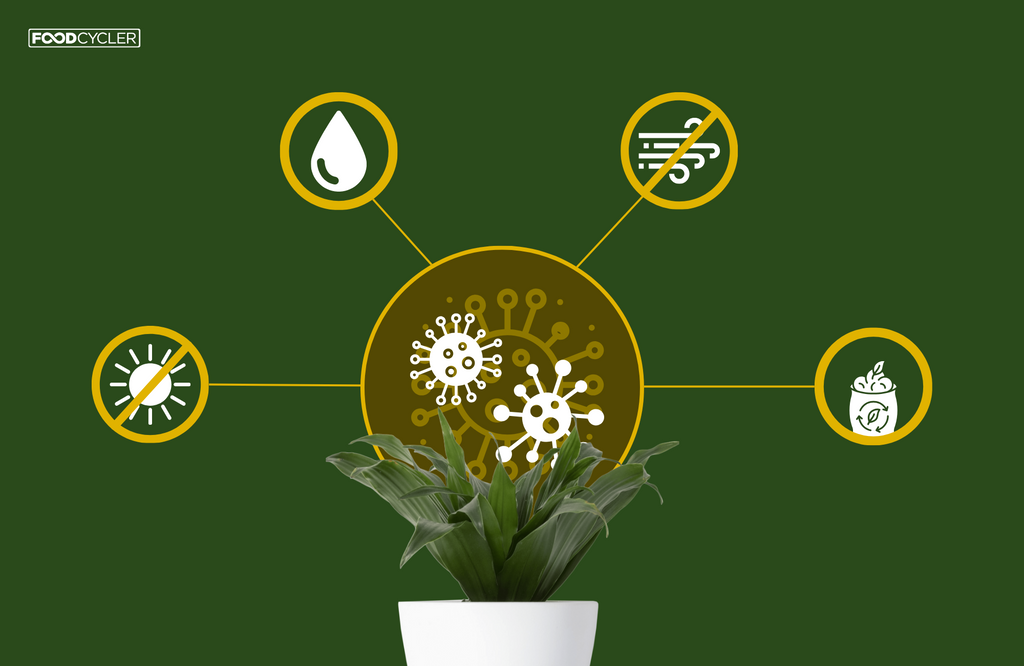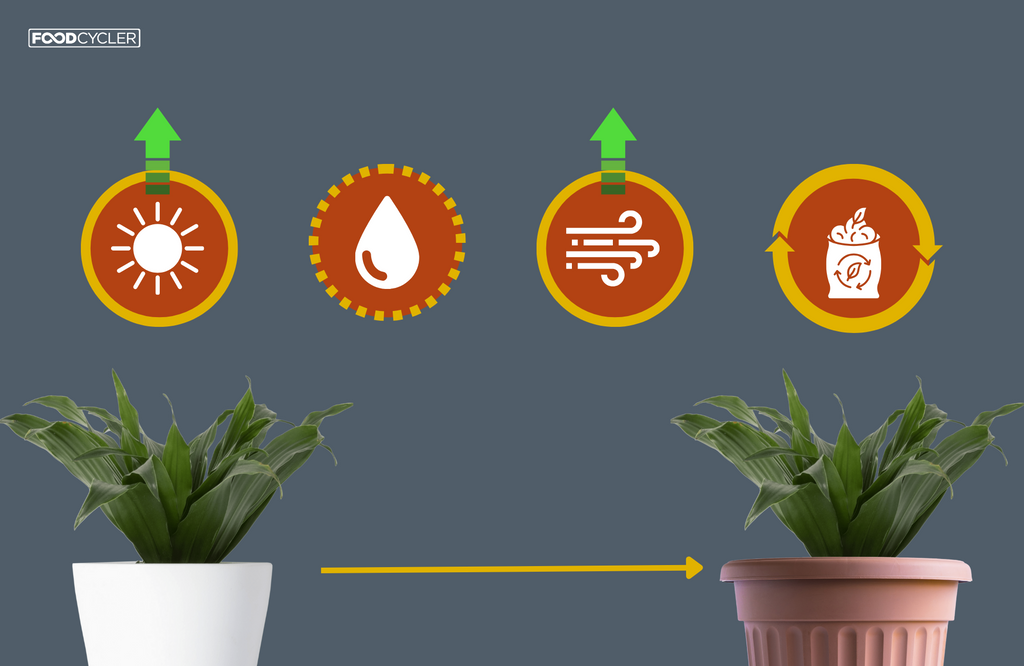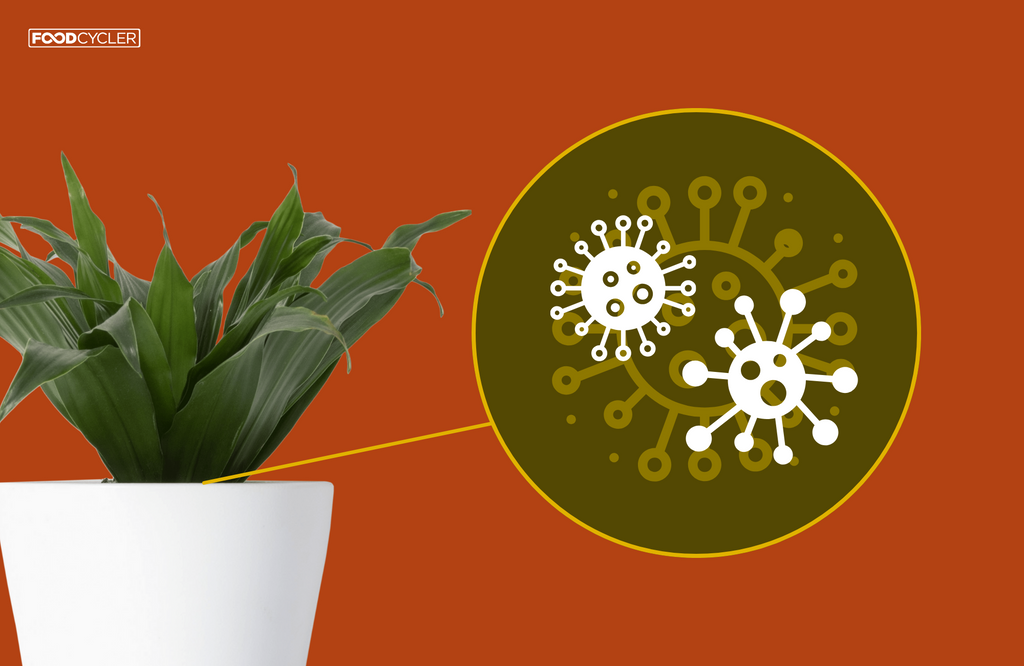Has Mold Invaded Your Plant's Soil? Here's What You Need to Know!
Have you ever been admiring your thriving indoor garden only to discover a patch of white fuzz on the soil around your plants? If so, don't panic! This blog post will guide you through understanding what that mold is, why it's there, and what you can do about it.
What Type of Mold is It?
If the mold on your potted plant's soil looks like a white fuzzy patch, it's likely a species of saprophytic fungi. These fungi are part of the largest group that grows on and decays organic matter, playing a crucial role in nutrient cycling, especially nitrogen.

Often referred to as "litter transformers," saprophytic fungi change the chemical composition of organic material into valuable nutrients for soil and plants. They are vital in food waste decay, breaking down organic material in compost piles.
Alongside actinomycetes, filamentous bacteria common in compost piles, these fungi break down organic matter into essential nutrients for plant growth. While the scientific names might seem complex, just remember that their presence in soil and compost is beneficial as they recycle organic material.
Why Is There Mold On My Soil?
The appearance of mold, or "fruiting bodies" of fungi, is natural. However, not all soils show visible signs of these fungi. Indoor environments often provide ideal conditions for saprophytic fungi to grow and develop mold. Factors include:

Not Enough Aeration: Actinomycetes thrive in low-oxygen conditions. White mold could indicate too little aeration.
Not Enough Sunlight: More sunlight can prevent mold growth by creating drier conditions.
Poor Drainage/Over-Watering: Mold and bacteria need moisture. Over-watering can create a moist environment for mold growth.
Organic Fertilizers: Adding organic fertilizer, like those produced by electric food waste recyclers such as the FoodCycler, can increase the risk of white mold. These fertilizers feed existing bacteria and fungi, accelerating growth. However, this is a positive phenomenon, often contributing to soil health.
Understanding the Role of Saprophytic Fungi in Food Waste Decay
The connection between saprophytic fungi and food waste decay is essential in composting. By decomposing organic waste, they transform it into nutrient-rich compost. This process aligns with our mission at Food Cycle Science Corporation, where tools like the FoodCycler enable individuals and communities to recycle food waste sustainably.
What Should I Do About the Mold?
Whether or not to address the mold is up to you. If it doesn't bother you, you can let nature take its course. If you're concerned about the presence of mold (or you find it icky), here are some suggestions:

Re-pot Your Plants: Give them more space and fresh soil for better aeration.
Increase Sunlight: Place your plant closer to a window to reduce soil moisture.
Improve Drainage: Ensure proper drainage to prevent overly wet conditions.
Mix Organic Fertilizer Properly: Follow the recommended ratio for mixing fertilizer with soil to prevent mold growth (we recommend between 1:10 and 1:20).
Note: If you have concerns about allergies or bronchial conditions, consult an expert and seek out specific guidelines for your situation.
A Note on Terminology
In this post, "mold" and "fungi" are used interchangeably. It's important to know that all molds are fungi, but not all fungi are molds. Molds grow in multicellular filaments called hyphae, often visible as patches on surfaces. Both molds and other fungi contribute to the decomposition process in soil and compost, recycling nutrients.
The FoodCycler® is a countertop electric food waste recycler that breaks down food scraps through a mechanical process into a dry, lightweight by-product that can be used in gardening applications as a fertilizer. The FoodCycler® and other electric food waste recyclers are not composters, nor do they produce compost or soil as they do not require additional microbes to break down food waste with bacteria. However, the term "electric composter" has been used to describe electric food waste recyclers.
